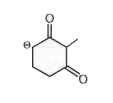Why are complex ions readily formed when water molecules react with the cation but not with the hydronium ions ?
To answer the question of why complex ions are readily formed when water molecules react with cations but not with hydronium ions, we can break down the explanation into a few clear steps:
Step 1: Understanding Complex Ions
Complex ions are formed when a central metal cation binds with one or more ligands. Ligands are molecules or ions that can donate a pair of electrons to the metal cation.
Step 2: Role of Water as a Ligand
Water (H₂O) is a common ligand due to its ability to donate a lone pair of electrons. Each water molecule has two lone pairs of electrons, and it can act as a Lewis base by donating one of these pairs to a metal cation.
Step 3: Reaction of Water with Cations
When water molecules encounter a metal cation, they can easily donate their lone pair of electrons to the cation. This interaction leads to the formation of a complex ion. For example, if we consider a metal cation like Cu²⁺, water molecules can coordinate with it to form (Cu(H₂O)₆)²⁺.
Step 4: Hydronium Ion Characteristics
The hydronium ion (H₃O⁺) is formed when water accepts a proton (H⁺). This ion carries a positive charge, which affects its ability to act as a ligand.
Step 5: Inability of Hydronium Ion to Form Complexes
Due to the positive charge on the hydronium ion, it has a strong electrostatic repulsion with other positively charged metal cations. As a result, hydronium ions cannot effectively donate their electrons to form bonds with metal cations, making them less likely to form complex ions.
Conclusion
In summary, complex ions are readily formed when water molecules react with cations because water can donate lone pairs of electrons easily. In contrast, hydronium ions, with their positive charge, cannot effectively donate electrons to form bonds with metal cations, thus hindering the formation of complex ions.
---
Complex ions are formed when a central metal cation binds with one or more ligands. Ligands are molecules or ions that can donate a pair of electrons to the metal cation.
Water (H₂O) is a common ligand due to its ability to donate a lone pair of electrons. Each water molecule has two lone pairs of electrons, and it can act as a Lewis base by donating one of these pairs to a metal cation.
When water molecules encounter a metal cation, they can easily donate their lone pair of electrons to the cation. This interaction leads to the formation of a complex ion. For example, if we consider a metal cation like Cu²⁺, water molecules can coordinate with it to form (Cu(H₂O)₆)²⁺.
The hydronium ion (H₃O⁺) is formed when water accepts a proton (H⁺). This ion carries a positive charge, which affects its ability to act as a ligand.
Due to the positive charge on the hydronium ion, it has a strong electrostatic repulsion with other positively charged metal cations. As a result, hydronium ions cannot effectively donate their electrons to form bonds with metal cations, making them less likely to form complex ions.
In summary, complex ions are readily formed when water molecules react with cations because water can donate lone pairs of electrons easily. In contrast, hydronium ions, with their positive charge, cannot effectively donate electrons to form bonds with metal cations, thus hindering the formation of complex ions.
Topper's Solved these Questions
- d- AND- f- BLOCK ELEMENTSBOOK - ICSECHAPTER - d- AND- f- BLOCK ELEMENTSEXERCISE - EXERCISE (PART-II) (DESCRIPTIVE QUESTIONS)(SHORT ANSWER QUESTIONS)
50 Videos
- d- AND- f- BLOCK ELEMENTSBOOK - ICSECHAPTER - d- AND- f- BLOCK ELEMENTSEXERCISE - EXERCISE (PART-II) (DESCRIPTIVE QUESTIONS)(LONG ANSWER QUESTIONS)
51 Videos
- d- AND- f- BLOCK ELEMENTSBOOK - ICSECHAPTER - d- AND- f- BLOCK ELEMENTSEXERCISE - EXERCISE (PART-I)(MATCH AND FOLLOWINGS):
1 Videos
- COORDINATION COMPOUNDS BOOK - ICSECHAPTER - COORDINATION COMPOUNDS EXERCISE - ISC EXAMINATION QUESTION (PART- II DESCRIPTIVE QUESTIONS)
39 Videos
- DISTINCTION BETWEEN PAIRS OF COMPOUNDS BOOK - ICSECHAPTER - DISTINCTION BETWEEN PAIRS OF COMPOUNDS EXERCISE - QUESTIONS
155 Videos
Similar Questions
Knowledge Check
Hydronium ion is formed when a molecule of water combines with
AHydrogen atomBProtonCHydrogen moleculeDOxygen atomThe enolate ion that reacts with
 A
A B
B C
C D
D
Among the given cations, the most stable carbonium ion is?
Asec-butylBtert-butylCr-butylDNone of these
Write the formula of hydronium ion.
View SolutionHow is pH scale related to concentration of Hydronium ions?
View SolutionWhy does H+ ion always get associated with atoms or molecules ?
View SolutionThe colour of the precipitate formed when ferrous ions react with ammonium hydroxide solution
View SolutionWhy does H+ ion always get associated with atoms or molecules ?
View Solution
